
Spices

Pepper
Pepper is one of the most widely used spices in the world, known for its bold, aromatic flavor that enhances a wide variety of dishes. Pepper comes from the Piper nigrum plant and is grown in tropical climates. The two main types of pepper used in cooking are black pepper and white pepper, though there are other varieties like green pepper and pink pepper that are also used in culinary applications.
Health Benefits of Pepper:
Rich in Antioxidants: Black pepper contains piperine, a compound that has antioxidant properties, which help neutralize free radicals and reduce inflammation in the body.
Aids Digestion: Pepper stimulates the production of digestive enzymes, helping to promote the digestion of food. It may also help relieve indigestion and gas.
Boosts Metabolism: The piperine in black pepper is known to increase metabolism, which may help with weight management by enhancing the body’s ability to burn calories.
Improves Nutrient Absorption: Piperine in pepper has been shown to enhance the bioavailability of certain nutrients, making it easier for the body to absorb minerals like selenium, turmeric (curcumin), and others.
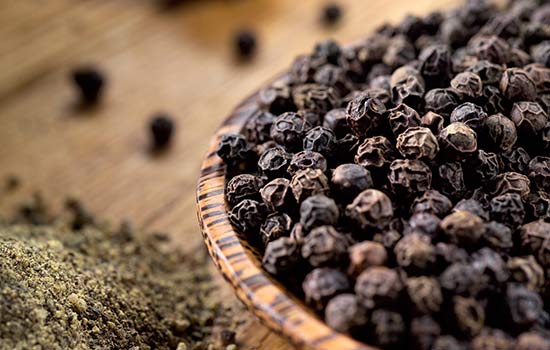
Antibacterial and Antifungal Properties: Pepper has been traditionally used to fight infections due to its antibacterial and antifungal properties, which help protect the body from harmful microbes.
Improves Respiratory Health: Pepper may act as an expectorant, helping to relieve symptoms of a cold or cough by loosening mucus in the respiratory tract.
Pepper is an essential spice in every kitchen, not just for its bold flavor, but also for its health benefits. Whether it’s used as a seasoning, in sauces, or as a key ingredient in spice blends, pepper enhances a variety of dishes across cuisines.
Cardoman
Cardamom is a highly aromatic and flavorful spice that is widely used in both sweet and savory dishes. It is often referred to as the “queen of spices” due to its rich, complex flavor profile and its historical significance in cooking and medicine. Cardamom comes in two main types: green cardamom (the most common) and black cardamom.
Health Benefits of Cardamom:
Rich in Antioxidants: Cardamom is a powerful antioxidant that helps neutralize free radicals in the body, reducing oxidative stress and preventing cellular damage.
Digestive Health: Cardamom has long been used in traditional medicine to improve digestion. It can help relieve indigestion, bloating, and gas, and it promotes a healthy appetite.
Anti-inflammatory: The compounds in cardamom have anti-inflammatory properties, which may help reduce inflammation in the body and relieve pain associated with conditions like arthritis.
Improves Oral Health: Cardamom has antibacterial properties and is often used to freshen breath and maintain oral hygiene. It’s commonly found in mouthwashes and chewing gums.
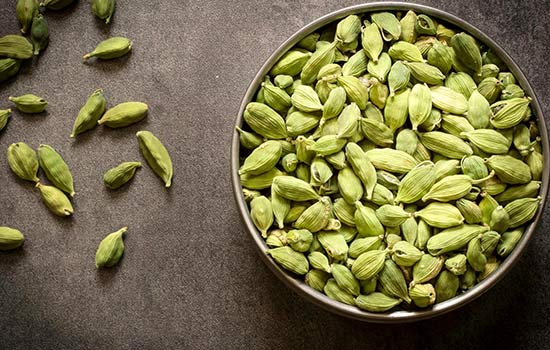
Detoxification: Cardamom helps promote kidney and liver function, making it effective for detoxification. It can aid in flushing out toxins from the body.
Supports Heart Health: Some studies suggest that cardamom can help lower blood pressure and reduce the risk of heart disease by improving cholesterol levels and reducing inflammation.
Mood Enhancement: Cardamom is thought to have mood-boosting properties. Its aroma is considered uplifting, and it is sometimes used in aromatherapy to reduce anxiety and stress.
Cardamom is a versatile spice with a unique, aromatic flavor that enhances both sweet and savory dishes. It has numerous health benefits and is a key ingredient in many traditional cuisines, from Indian curries to Scandinavian pastries.
Cumin Seed
Cumin seeds are a popular spice with a distinctive earthy, warm, and slightly peppery flavor. Cumin comes from the dried seeds of the Cuminum cyminum plant, a member of the parsley family. It is widely used in cooking across many cultures, particularly in Indian, Middle Eastern, Mexican, and Mediterranean cuisines.
Key Characteristics of Cumin Seeds:
Flavor: Earthy, warm, and slightly nutty with a bit of a sharp, peppery kick. Ground cumin has a more concentrated flavor, while whole cumin seeds have a more subtle aroma.
Appearance: The seeds are small, oblong, and ridged. They are usually light brown to yellowish in color.
Aroma: Cumin seeds have a strong, aromatic fragrance when toasted or ground.
Nutritional Benefits of Cumin Seeds:
Rich in Iron: Cumin is an excellent source of iron, which is essential for red blood cell production and preventing iron-deficiency anemia.
Digestive Aid: Cumin has been traditionally used to improve digestion. It promotes the production of digestive enzymes and can help relieve indigestion, bloating, and gas.
Antioxidant Properties: Cumin is high in antioxidants, which help protect the body from oxidative stress and free radical damage, potentially reducing the risk of chronic diseases.
Anti-inflammatory: Cumin has anti-inflammatory properties that may help reduce inflammation in the body, making it beneficial for conditions like arthritis.
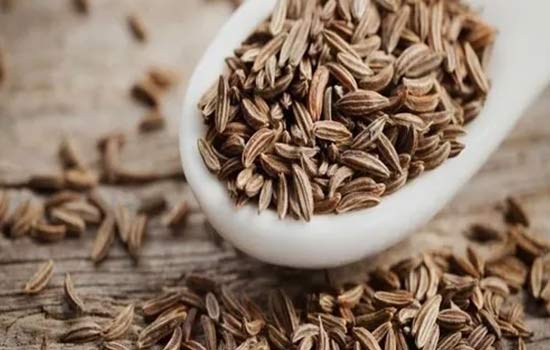
Weight Loss: Some studies suggest that cumin can aid in weight loss by improving digestion and increasing metabolism, making it a popular ingredient in weight-loss diets.
Antibacterial and Antifungal: Cumin has antibacterial properties, which help combat infections and promote overall immune health.
Blood Sugar Regulation: Cumin has been shown to help regulate blood sugar levels, making it useful for people with diabetes. Cumin seeds are a powerful, aromatic spice that adds depth and warmth to dishes. Whether you’re using them whole for tempering or ground in spice mixes, cumin is an essential part of many global cuisines.
Fennal Seeds
Fennel seeds are aromatic seeds from the Foeniculum vulgare plant, which is part of the parsley family. They are small, oval-shaped, and have a slightly sweet, licorice-like flavor with a hint of aniseed. Fennel seeds are commonly used in cooking, medicine, and even as a natural remedy for digestion.
Key Characteristics of Fennel Seeds:
Flavor: Sweet, mild, and slightly spicy with hints of licorice and anise. The flavor is aromatic and refreshing, often described as slightly minty.
Appearance: Fennel seeds are light green to yellowish-brown in color and have a slightly ridged, oval shape.
Aroma: Fennel seeds have a strong, pleasant aroma, which can become even more intense when toasted or crushed.
Health Benefits of Fennel Seeds:
Digestive Aid: Fennel seeds are often used to aid digestion. They help relieve bloating, indigestion, and gas, and can promote regular bowel movements. They are commonly used as a post-meal digestive aid.
Rich in Antioxidants: Fennel seeds contain several antioxidants, such as flavonoids, that help protect cells from oxidative damage, potentially reducing the risk of chronic diseases.
Anti-inflammatory Properties: The compounds in fennel seeds have anti-inflammatory effects, which can help reduce inflammation in the body and alleviate pain.
Hormonal Balance: Fennel seeds contain phytoestrogens, plant compounds that mimic the effects of estrogen in the body. They are sometimes used to support hormonal balance in women, particularly during menopause.
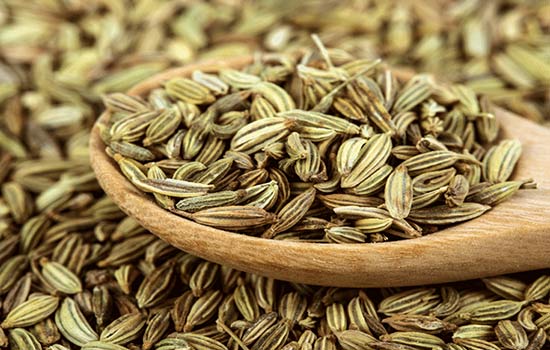
Weight Loss: Fennel seeds can be beneficial in weight management. They are thought to support metabolism and reduce appetite, helping with portion control.
Boosts Immunity: Rich in vitamin C, fennel seeds help boost the immune system, support skin health, and fight infections.
Good for Respiratory Health: Fennel seeds are known for their ability to relieve symptoms of respiratory conditions such as asthma, cough, and bronchitis, thanks to their anti-inflammatory and soothing properties.
Coriander Seeds
Coriander seeds come from the coriander plant (Coriandrum sativum) and are a popular spice used in cooking around the world. They have a warm, spicy, and slightly citrusy flavor that adds depth to both sweet and savory dishes. Here’s a bit more about them:
Health Benefits:
Digestive Aid: Coriander seeds are well-known for their digestive properties. They help relieve indigestion, bloating, and gas. They can also stimulate the appetite.
Antioxidant: Coriander seeds contain antioxidants that help protect the body against oxidative stress.
Blood Sugar Regulation: There is some evidence that coriander seeds can help manage blood sugar levels, making them useful for people with diabetes.
Anti-inflammatory: They have mild anti-inflammatory properties and may help reduce inflammation in the body.
Detoxification: They are believed to aid in detoxifying the body and may help lower cholesterol levels. Coriander seeds are truly versatile, making them a valuable ingredient in both cooking and natural remedies. Whether you’re adding them to a curry, making a detoxifying tea, or experimenting with new spice blends, they can bring a bright, warm flavor to many dishes.
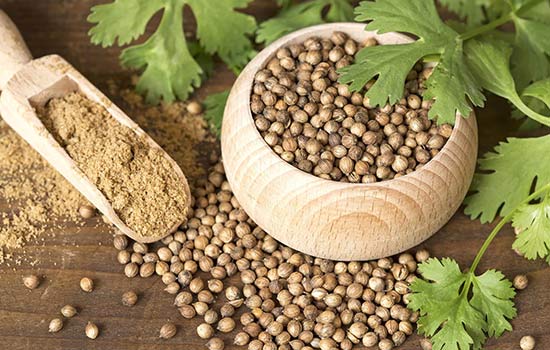
Fenugreek Seeds
Fenugreek seeds, from the plant Trigonella foenum-graecum, are small, yellow-brown seeds with a distinct, slightly bitter taste and a pungent aroma. They have been used for centuries in both cooking and traditional medicine. Here’s a deeper dive into fenugreek seeds:
Health Benefits:
Health Benefits: Fenugreek has been used for centuries in traditional medicine for various purposes. Some of the potential health benefits include:
Supporting digestion: Fenugreek may help with digestive issues like indigestion, bloating, and constipation.
Managing blood sugar: Some studies suggest that fenugreek can help lower blood sugar levels, making it potentially beneficial for people with diabetes.
Boosting milk production: Fenugreek is often used by breastfeeding mothers to promote lactation.
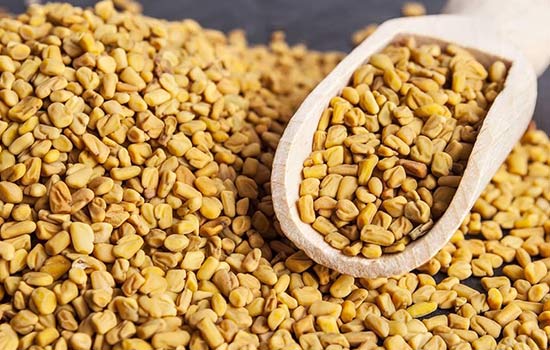
Reducing cholesterol: There’s evidence that fenugreek seeds may help lower total cholesterol and LDL (“bad” cholesterol).
Anti-inflammatory: Fenugreek has anti-inflammatory properties, which may help with conditions like arthritis.
Fenugreek seeds are a versatile ingredient that offers numerous health benefits and adds a unique flavor to a variety of dishes. Whether you’re using them in cooking or as part of a wellness routine, they can be a valuable addition to your pantry.
Mustard Seeds
Mustard seeds come from the mustard plant (Brassica species) and are a common ingredient in many cuisines, especially in Indian, Middle Eastern, and Western cooking. They have a sharp, pungent flavor that can vary depending on the type and how they are used. Here’s an in-depth look at mustard seeds and their culinary uses:
Types of Mustard Seeds:
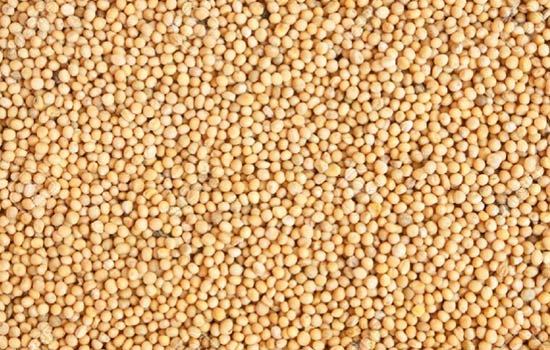
Yellow/White Mustard Seeds (Brassica alba)
These are the mildest variety, often used in Western cooking, such as for making yellow mustard sauce.
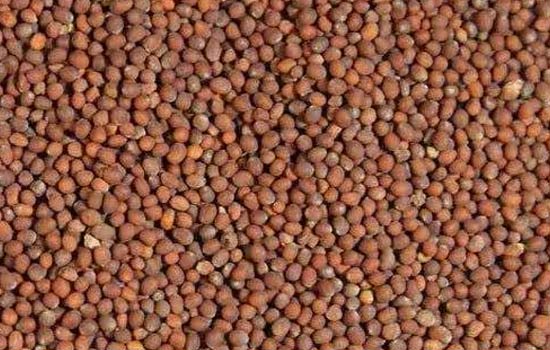
Brown Mustard Seeds (Brassica juncea):
These are more pungent and are commonly used in Indian, Middle Eastern, and Asian cooking.
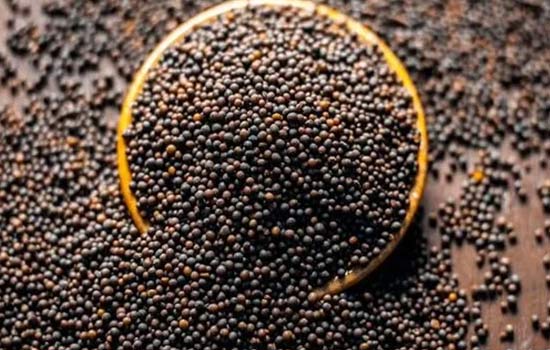
Black Mustard Seeds (Brassica nigra)
The hottest and most pungent variety, they are frequently used in Indian and other South Asian cuisines for tempering and in pickles.
Health benefits of mustard seeds:
Supports Digestive Health: Mustard seeds stimulate digestive enzymes and help relieve constipation and indigestion.
Anti-inflammatory: They contain compounds like selenium and magnesium, which help reduce inflammation in the body.
Heart Health: Mustard seeds may help lower bad cholesterol (LDL) and regulate blood pressure, improving overall heart health.
Boosts Metabolism: The compounds in mustard seeds can stimulate metabolism, aiding in fat burning and weight management.
Rich in Nutrients: Mustard seeds are high in vitamins (A, C, K) and minerals (calcium, iron, magnesium), supporting overall health.
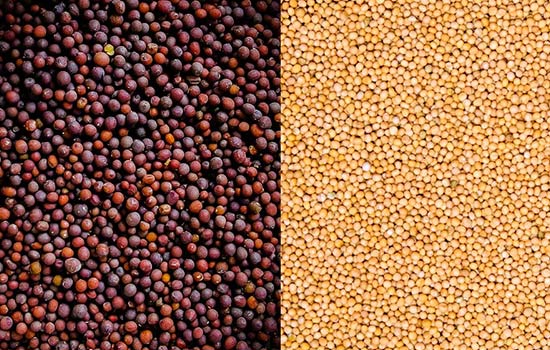
These are some of the key benefits you can get from incorporating mustard seeds into your diet!
Mustard seeds bring heat, tang, and sharpness to dishes, making them an essential component of many spice blends and marinades. Their versatility in both whole and ground forms allows them to be used in a variety of culinary applications, from tempering in curries to making sauces and pickles.
Sesame Seeds
Sesame seeds are tiny, flat, oval-shaped seeds that come from the Sesamum indicum plant. Known for their nutty flavor and crunch, they are one of the oldest cultivated crops in the world and are commonly used in a variety of cuisines, especially in Middle Eastern, Asian, and African dishes. Here’s a comprehensive look at sesame seeds and their culinary uses:
Health Benefits of Sesame Seeds:
Rich in Nutrients: Sesame seeds are high in essential nutrients like calcium, iron, magnesium, and phosphorus. They also contain a good amount of protein and fiber.
Antioxidants: Sesame seeds are rich in antioxidants like sesamol and sesamin, which can help protect the body from oxidative stress and promote overall health.
Heart Health: Sesame seeds contain monounsaturated fats (the “healthy” fats), which may help lower cholesterol levels and support heart health.
Bone Health: Sesame seeds are an excellent source of calcium and magnesium, which are crucial for maintaining healthy bones.
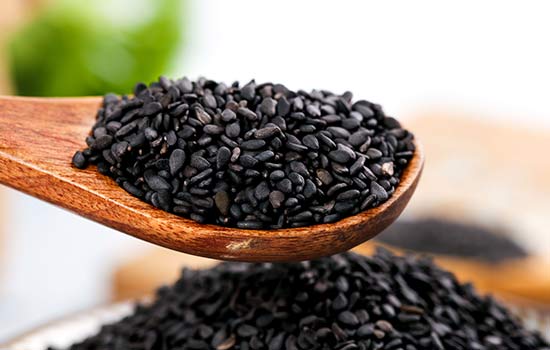
Anti-inflammatory Properties: Some compounds found in sesame seeds have anti-inflammatory effects that can help reduce the risk of chronic diseases.
Blood Sugar Control: Sesame seeds may help with blood sugar control due to their high fiber content and the presence of healthy fats.
Sesame seeds are incredibly versatile and can be used in a wide range of dishes, both savory and sweet. Whether you’re adding them to a salad, baking them into bread, or using sesame oil to cook, these tiny seeds bring rich flavor and nutritional benefits to your meals.
